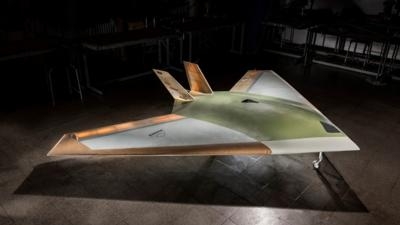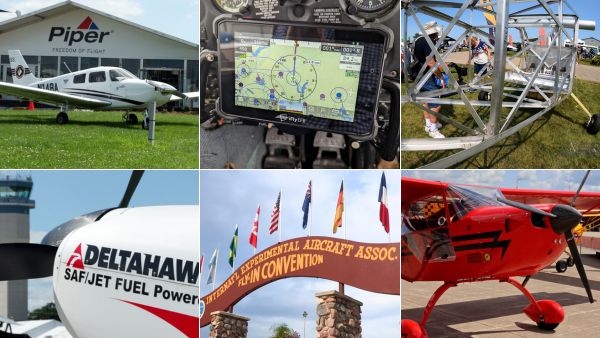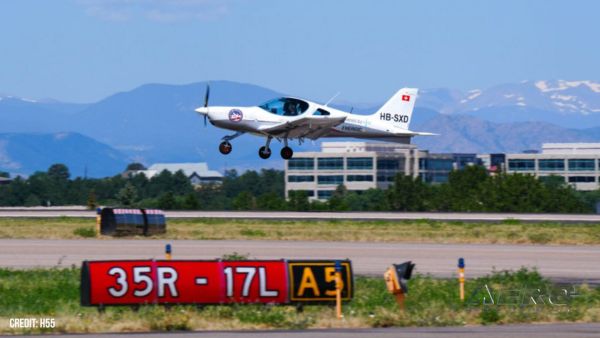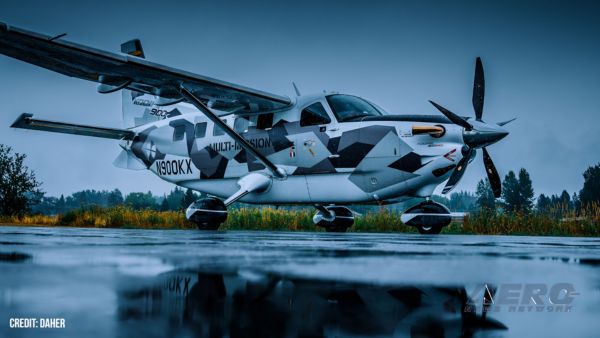Mon, Dec 18, 2017
BAE Systems And The University Of Manchester Seek To Change The Future Of Aircraft Design
BAE Systems and The University of Manchester have successfully completed the first phase of flight trials with MAGMA – a small scale unmanned aerial vehicle (UAV) which will use a unique blown-air system to maneuver the aircraft - perhaps leading to stealthier aircraft designs in the future.

The new concept for aircraft control removes the conventional need for complex, mechanical moving parts used to move flaps to control the aircraft during flight. This could give greater control as well as reduce weight and maintenance costs, allowing for lighter, stealthier, faster and more efficient military and civil aircraft in the future.
The two technologies to be trialled first using the jet-powered UAV, MAGMA, are:
Wing Circulation Control, which takes air from the aircraft engine and blows it supersonically through the trailing edge of the wing to provide control for the aircraft
Fluidic Thrust Vectoring, which uses blown air to deflect the exhaust, allowing for the direction of the aircraft to be changed.
The flight trials are part of an ongoing project between the two organizations and wider long-term collaboration between industry, academia and government to explore and develop innovative flight control technology. Further flight trials are planned for the coming months to demonstrate the novel flight control technologies with the ultimate aim of flying the aircraft without any moving control surfaces or fins. If successful, the tests will demonstrate the first ever use of such circulation control in flight on a gas turbine aircraft and from a single engine.
"The technologies we are developing with The University of Manchester will make it possible to design cheaper, higher performance, next generation aircraft," said Clyde Warsop, Engineering Fellow at BAE Systems. "Our investment in research and development drives continued technological improvements in our advanced military aircraft, helping to ensure UK aerospace remains at the forefront of the industry and that we retain the right skills to design and build the aircraft of the future.”
"These trials are an important step forward in our efforts to explore adaptable airframes," said Bill Crowther, a senior academic and leader of the MAGMA project at The University of Manchester. "What we are seeking to do through this programme is truly ground-breaking.”
Additional technologies to improve the performance of the UAV are being explored in collaboration with the University of Arizona and NATO Science and Technology Organization.
(Image provided with BAE news release)
More News
Also: DeltaHawk, Piper, Hartzell, High Flying Models & Bob Hoover Legacy, SUN n FUN26 and Affordable Flying Expo 2025 -- and MUCH More. In an exclusive interview earlier this m>[...]
Also: Sully v Bedford, Embraer Scholarships, NORAD Intercepts 11, GAMA Thankful Middle Georgia State University will be joining the Federal Aviation Administration’s fight ag>[...]
Also: DeltaHawk, Piper, Hartzell, High Flying Models & Bob Hoover Legacy, SUN n FUN26 and Affordable Flying Expo 2025 -- and MUCH More. In an exclusive interview earlier this m>[...]
Aero Linx: Minnesota Seaplane Pilots Association (MSPA) We are the Minnesota Seaplane Pilots Association (MSPA), a nonprofit organization dedicated to supporting and empowering sea>[...]
Preferred IFR Routes Routes established between busier airports to increase system efficiency and capacity. They normally extend through one or more ARTCC areas and are designed to>[...]
 Airborne 07.18.25: Will MOSAIC Be Announced Tuesday???, 12 Hot News Items
Airborne 07.18.25: Will MOSAIC Be Announced Tuesday???, 12 Hot News Items Airborne-Flight Training 07.10.25: ATC School, Air Race Classic, Samson School
Airborne-Flight Training 07.10.25: ATC School, Air Race Classic, Samson School Airborne 07.18.25: Will MOSAIC Be Announced Tuesday???, 12 Hot News Items
Airborne 07.18.25: Will MOSAIC Be Announced Tuesday???, 12 Hot News Items ANN's Daily Aero-Linx (07.16.25)
ANN's Daily Aero-Linx (07.16.25) ANN's Daily Aero-Term (07.16.25): Preferred IFR Routes
ANN's Daily Aero-Term (07.16.25): Preferred IFR Routes



